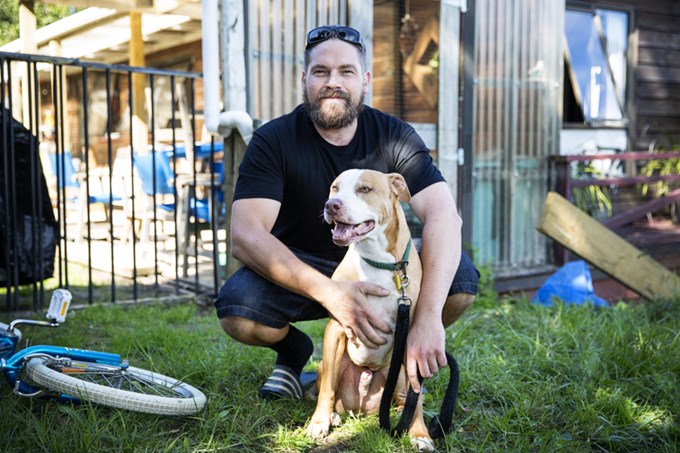It’s been the biggest year yet for Auckland’s Animal Management team.
The unit is the largest of its type in the Southern Hemisphere, covering field operations and shelter services for the entire region.
Even with this vast programme of work and increasing requests for service, the 2015/2016 Animal Management Annual Report shows successes across the board.
The report, presented to the Regional Strategy and Policy Committee on 1 September, is the first since the unit has completed a full calendar and financial year operating in-house. This model has seen a total saving for field services of $1.05 million over the year, compared to 2014/2015.
“We’ve had a challenging but rewarding year, and I’m proud of the excellent results the team has delivered,” says Geoff Keber, Manager Animal Management.
The committee echoed these sentiments, congratulating the team on its achievements this year.
More dogs means more work
As Auckland continues to grow, so does its dog population. As highlighted in the report, Animal Management registered 106,706 dogs over the year – the highest number ever recorded in the region.
With more dogs around, the team is working harder than ever to keep Aucklanders safe. They received 40,360 requests for service over the year. Of those, 14,835 required a priority one response, which means they have to be attended to within one hour.
Animal Management officers responded to 99.2 per cent of these priority one requests within this optimal timeframe, exceeding their service delivery target of 95 per cent.
Homes found for all adoptable dogs
The council’s animal shelters impounded 8,614 dogs across the year. On average, 58% were reunited with their owners.
Of the remaining dogs, 100 per cent of those that were suitable for adoption were re-homed, up from 98 per cent the previous year. A total of 636 dogs were re-homed, over 230 more than in 2014/2015.
“We’re passionate about ensuring every adoptable dog in our shelters finds a loving home, and we work hard to make sure that happens.”
“A big part of this is our work with other agencies and rescue groups, and we’ll continue prioritising these positive relationships going forward,” says Mr Keber.
Amnesty exceeds expectations
Auckland Council took 197 prosecutions against dog owners for dog-related incidents throughout the year, with 38 per cent of the dogs involved in these being pit bull types.
“The evidence of harm caused by menacing dogs is overwhelming, particularly when you look at these prosecutions,” says Mr Keber.
“We also saw a shocking number of tragic attacks on young children by menacing dogs this year, which is why we implemented our amnesty on menacing dogs.
“It was important to us to do something that would directly reduce the likelihood of incidents like these happening again in the future.”
As a result of the council’s amnesty, 1245 dogs were brought forward by their owners to be de-sexed.
“The outcome exceeded our expectations, and will help prevent unwanted litters, as well as reducing wandering and aggression-related offences,” says Mr Keber.
Following the conclusion of the amnesty, Animal Management launched a widespread compliance campaign. Within the first four weeks, 80 dogs were seized for non-compliance, and a further 38 dogs were registered on site. The campaign is ongoing.
Other highlights
The report states that Animal Management is doing the final work on a memorandum of understanding for a joint ongoing de-sexing partnership with the SPCA Auckland.
“We will be providing reduced cost de-sexing for community card holders, with the aim of stemming the flow of irresponsible breeding and rearing,” Mr Keber says.
The year also saw the promotion of the council’s animal shelters as the first point of contact for people wanting to adopt a dog through the incredibly popular “walk your human” and “doggy speed dating” campaigns over the summer months.
Another key focus was increasing public awareness on how to be safe around dogs, with a particular emphasis on children and people working in the community.
The council partnered with Colenso and Pedigree to develop and launch the Pedigree Dog Safety App, an interactive adventure app that teaches children and their parents how to be safe around dogs, which has been downloaded almost 3500 times.
For more information, the full report can be found here.


